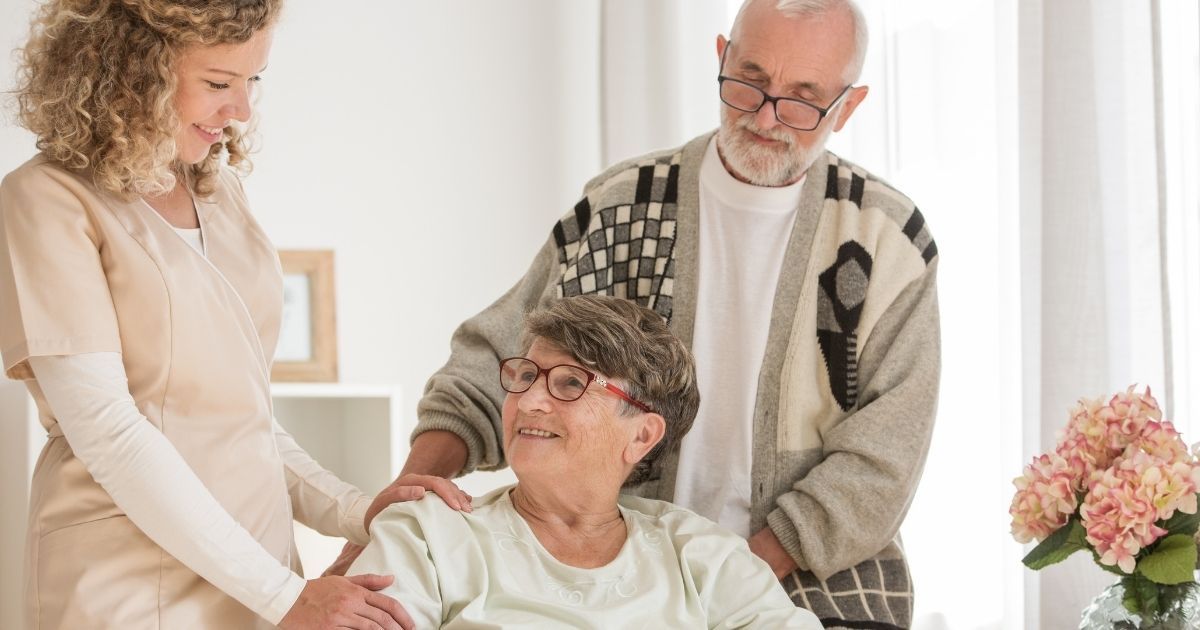Over 34 million family caregivers in the US care for aging in place elderly relatives, and you may be one of them. When it becomes necessary to hire a professional caregiver from a home care agency many informal caregivers feel like their services are no longer needed. But family caregivers are an essential part of the caregiving equation, starting with their role as an unofficial care coordinator. Here are some of the ways that family and professional caregivers can work together so that the care recipient’s needs are always being met.
Why Informal Caregivers Need Help
Although caring for an independent senior is highly rewarding, it can also be physically, mentally, and emotionally demanding. Since most informal caregivers also hold down at least a part-time job and manage a household, caregiver stress is common. When it persists, caregiver stress can cause serious physical and emotional problems that affect all parties involved.
Since taking care of an elder with dementia, a terminal illness or limited mobility is even more challenging, many family caregivers eventually turn to professional home care as an alternative to assisted living or a nursing home. But that doesn’t mean that the informal caregiver’s services are no longer needed.
Your Coordination-of-Care Strategy
When hiring a professional caregiver, whether it’s for respite care, live-in care, dementia care, or another type of support, there are several areas where a family caregiver and home care professional can coordinate their efforts.
As an informal caregiver these are some of the key components of an effective coordination-of-care strategy:
Have a face-to-face conversation
First, hold a face-to-face conversation with your loved one and their potential caregiver. Use this time to discuss the activities of daily living (ADLs) that your senior needs assistance with and to determine if the personalities of all parties involved are compatible.
Based on your loved one’s needs, be sure that the caregiver is experienced in providing the required level of care. It’s also a good idea to join the professional caregiver on their first few visits. This helps as they get acclimated to their surroundings and comfortable around your loved one.
Create a schedule that works
When coordinating in-home care, scheduling is of the utmost importance. Sit down and discuss
how the scheduling should be handled- especially during an emergency or when the primary caregiver has a day off.
Some of the key scheduling issues that need to be addressed upfront include:
- The professional caregiver’s normal working hours
- How to notify you when there’s been a change in their schedule
- Availability upon request for non-scheduled visits
- A continuity-of-care plan in case of an emergency
Being on the same page from day one will make coordinating care much easier moving forward. Also, most professional home care agencies will already have administrative policies in place that address these staffing issues.
Keep lines of communication open
To ensure your loved one’s safety and comfort, it’s important to establish open, honest lines of communication between family members and the professional staff. Even the smallest details can make a big difference when it comes to the quality of care they receive.
While coordinating care during the first month or so, take a few minutes at the start and end of each home visit to speak with your senior’s caregiver. Doing so will facilitate an ongoing communication process that eventually becomes a habit rather than an exception.
Communicating routinely will also allow you to constantly stay informed about your loved one’s condition. It also helps you to assess their future needs and keep other family members updated.
An Extended Family in Your Loved One’s Home
When you need help caring for an aging family member, finding professional caregivers that you’re comfortable with isn’t easy. We can help!
We’re a fully licensed home care agency with highly trained, experienced caregivers who specialize in keeping aging in place seniors safe and comfortable right where they want to be. Our full menu of in-home services includes personal care, respite care, dementia care, meals, companionship, medication reminders, and transportation.
While serving as an extended family in your loved one’s home, our focus is maintaining their quality of life, independence, and dignity. To learn more about our flexible and affordable home care packages now, or to schedule a FREE in-home consultation for a senior in our service area today, please call us or visit us online!






